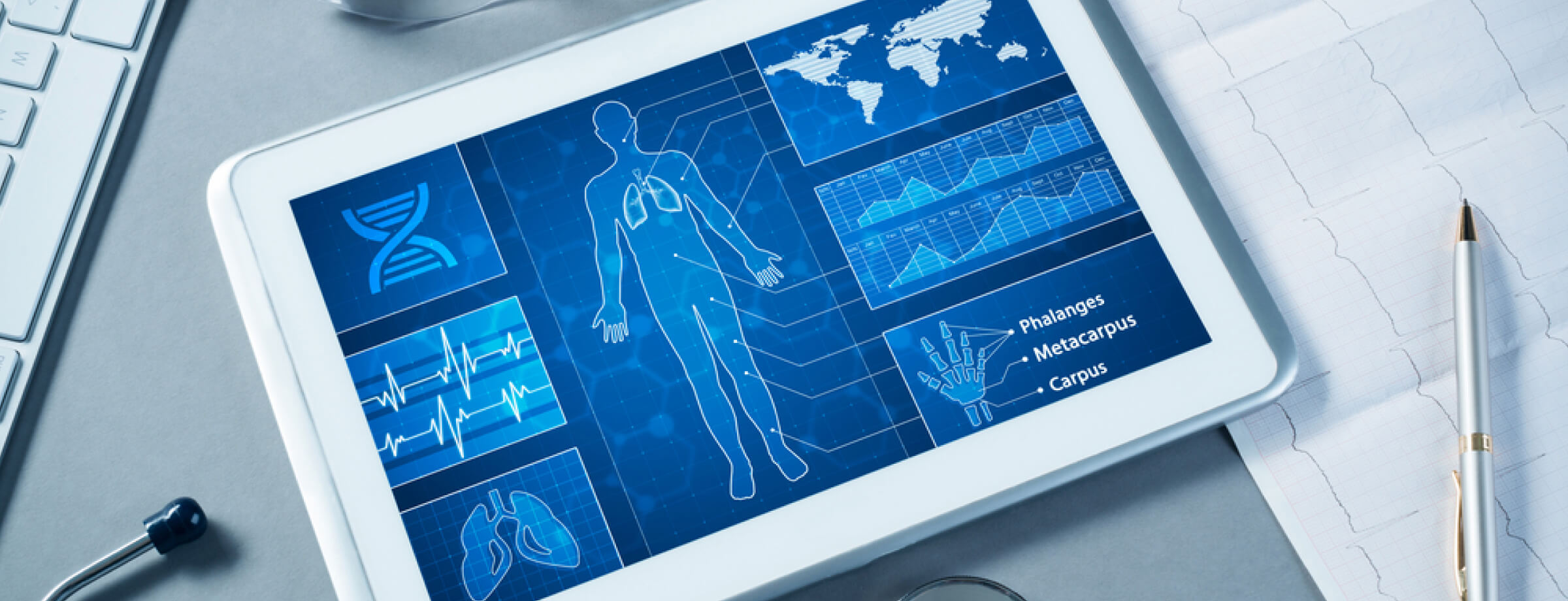If you’re working in healthcare right now, you probably don’t need me to tell you just how intense things have gotten. Hospitals are busier than ever, staff are stretched thin, and errors due to miscommunication and administrative overload are alarmingly common. These issues are not just frustrating—they’re costly, dangerous, and a key reason for burnout among healthcare professionals.
But what if there were a way to make things easier, faster, and more efficient? That’s where mobile app development comes in, offering solutions tailored to the healthcare industry. At Blue Whale Apps, we specialize in building custom mobile apps that directly address the most pressing challenges facing hospitals today.
Let’s talk specifics. What are the biggest problems facing hospitals, and how can mobile app solutions—particularly the ones developed by Blue Whale Apps—make a real difference?
Healthcare Staffing Challenges: A Growing Crisis
I’m sure you’ve felt it firsthand—there simply aren’t enough hands to go around. Staffing shortages are at crisis levels in many parts of the U.S. If you’re in a big city like Chicago or New York City, this is especially pronounced, with hospitals scrambling to fill critical gaps in care teams.
Why is this happening?
- Aging Population: As baby boomers grow older, the demand for healthcare services has skyrocketed. Unfortunately, the supply of healthcare workers hasn’t kept pace.
- Burnout: The physical and emotional demands of healthcare work are driving professionals out of the field. The American Medical Association reports that nearly 50% of healthcare workers experience burnout, a figure that’s only grown since the COVID-19 pandemic.
- Lack of Training Programs: It takes years to train qualified doctors, nurses, and allied health professionals, and current education programs are simply not producing enough graduates to meet demand.
It’s a perfect storm: more patients, fewer healthcare workers, and overwhelming workloads for those who remain. By 2034, the Association of American Medical Colleges estimates a shortage of up to 124,000 physicians in the U.S. This leaves existing staff—people like you—working longer hours, juggling more patients, and ultimately, struggling to maintain the high standards of care that every patient deserves.
How Mobile Apps Can Address Staffing Shortages
So, what’s the solution? You might be surprised, but mobile app technology can make a huge impact. Here’s how:
- Task Automation: Every minute a nurse spends inputting patient data, answering routine questions, or handling billing paperwork is a minute they aren’t caring for patients. A mobile app that automates these routine tasks can free up hours each day. For instance, automated scheduling systems can assign tasks to staff based on availability and workload, reducing the risk of overburdening individuals.
- Telemedicine & Remote Monitoring: With staffing shortages, having to see every patient in person can be a major bottleneck. What if you could monitor patients remotely? Telemedicine apps allow doctors to consult with patients without them needing to visit the hospital, while remote monitoring apps let nurses keep track of a patient’s vital signs from afar.
- Streamlined Communication: One of the best ways to make a smaller team more effective is to streamline internal communication. Better communication can help ensure the right team members get the right information, at the right time, without delay.
Imagine how much smoother things would run if your staff had an easy-to-use app that handles all these functions. Blue Whale Apps builds mobile apps specifically tailored to help hospitals overcome these staffing challenges by automating workflows and facilitating remote care.
Administrative Overload: Is Paperwork Eating Your Time?
Let me ask you something: How much of your day is spent filling out forms, documenting patient interactions, or managing compliance paperwork? If you’re like most healthcare professionals, administrative tasks probably take up a significant chunk of your time.
According to studies, doctors and nurses in New York City hospitals spend close to 40% of their time on administrative tasks. That’s almost half the day spent on activities that don’t involve direct patient care. It’s no wonder that administrative overload is often cited as a major cause of stress and burnout among healthcare workers.
How Mobile Apps Can Reduce Administrative Work
Mobile apps aren’t just about providing information to patients—they can streamline the administrative tasks that are eating away at your time. Let’s break down how:
- EHR Integration: How many different systems are you dealing with daily? Probably quite a few. Electronic Health Records (EHR) are fantastic in theory, but often clunky and time-consuming in practice. Blue Whale Apps can develop a mobile app that integrates seamlessly with your EHR systems, allowing you to access patient data, input information, and retrieve medical histories in seconds.
- Voice-to-Text Capabilities: Imagine if you could simply talk into your phone or tablet, and the app automatically transcribes your notes. With voice-to-text technology, documenting patient encounters is faster and easier than ever.
- Automated Billing and Scheduling: How much time is spent chasing down payments, coordinating appointment times, and dealing with scheduling conflicts? Mobile apps can automate these processes by allowing patients to self-schedule appointments and pay bills through the app.
| Challenge | Blue Whale Apps Solution |
|---|---|
| Administrative Overload | EHR integration, voice-to-text, automated billing |
| Staffing Shortages | Task automation, telemedicine, remote patient monitoring |
Think of all the hours you and your team could save by offloading these tasks onto a custom mobile app.
Communication Breakdowns: The Silent Risk in Healthcare
Let’s face it: Communication in hospitals can be chaotic. It’s not that people aren’t trying—it’s that the systems in place aren’t effective enough to keep up with the pace of a modern hospital. This is especially true in large hospitals like those in Los Angeles, where different departments might as well be working on different planets.
In fact, poor communication is one of the leading causes of medical errors. The Joint Commission found that 70% of all medical errors stem from communication failures.
How Mobile Apps Improve Communication in Hospitals
- Real-Time Messaging: In the fast-paced environment of a hospital, time is of the essence. A secure, real-time messaging feature allows doctors, nurses, and administrative staff to communicate instantly and securely.
- Patient Alerts and Status Updates: Mobile apps can send real-time alerts whenever there’s a change in a patient’s status.
- Shift Change Management: Mobile apps developed by Blue Whale Apps provide a shift change management feature that allows outgoing staff to document and pass on important patient details directly through the app.
| City | Common Communication Challenge | Blue Whale Apps Solution |
|---|---|---|
| Los Angeles | Communication delays during shift changes and handoffs | Real-time messaging, patient alerts, shift management features |
| Miami | HIPAA-compliant communication across multiple departments | Secure messaging, real-time notifications |
Data Security & Compliance: Is Your Hospital at Risk?
If there’s one thing that can keep a hospital administrator up at night, it’s the fear of a data breach. Hospitals are prime targets for cybercriminals because of the sheer amount of sensitive patient data they handle. In Miami, for instance, hospitals saw a 30% increase in attempted cyberattacks in 2022 alone.
How Blue Whale Apps Secures Healthcare Data
- HIPAA Compliance: Every app we develop is built with HIPAA regulations in mind. This means we implement stringent security protocols to ensure that patient information is handled and stored securely.
- Advanced Encryption & Authentication: In addition to HIPAA compliance, we employ end-to-end encryption and multi-factor authentication to protect sensitive data.
- Audit Trails: Keeping track of who accesses patient data and when is a crucial part of maintaining compliance.
Improving Patient Engagement: Reducing Readmissions and Enhancing Care
Do you ever feel like your patients aren’t as engaged in their healthcare as they should be? Maybe they miss appointments, fail to follow post-discharge instructions, or don’t adhere to their medication schedules. This is a common issue, particularly in cities like Dallas.
How Mobile Apps Boost Patient Engagement
- Appointment & Medication Reminders: One of the biggest reasons for readmissions is patients failing to stick to their medication schedules or attend follow-up appointments. Mobile apps can send automatic reminders to patients.
- Access to Medical Records: Mobile apps give patients easy access to their medical records, test results, and treatment histories.
- Educational Resources: Our apps provide patients with tailored educational content about their condition, medications, and treatment plans.
| Patient Engagement Challenge | Mobile App Solution |
|---|---|
| Missed Appointments & Medications | Automated reminders for appointments and medications |
| Lack of Patient Education | Access to medical records and educational resources |
| Poor Follow-Up After Discharge | Real-time communication and alerts for follow-up care |
Why Blue Whale Apps is the Right Partner for Your Healthcare Mobile App Needs
At Blue Whale Apps, we understand the unique challenges hospitals face today. Our mobile app solutions are designed not only to improve staff efficiency but also to enhance patient care, reduce errors, and streamline workflows. Whether your hospital is struggling with staffing shortages, administrative overload, or communication issues, our custom mobile apps are built to solve these exact problems.
Here’s what sets Blue Whale Apps apart:
- HIPAA-Compliant Mobile Apps: Every app is designed with data security and compliance at the forefront.
- EHR Integration: Our apps integrate seamlessly with existing Electronic Health Record systems.
- Telemedicine Capabilities: By enabling remote consultations and patient monitoring, our apps help reduce hospital crowding and improve access to care.
- Task Automation & Scheduling: From automating billing to managing appointment schedules, our apps reduce the administrative burden on staff.
- Patient Engagement Tools: Our patient-facing apps provide appointment reminders, medication tracking, and educational resources.
For more insights into the future of healthcare app development, check out our blog on Top 10 Healthcare App Development Trends to Watch in 2024.
Conclusion
If your hospital is struggling with staffing shortages, communication breakdowns, or administrative inefficiencies, you’re not alone. Hospitals across the U.S. are facing the same challenges, but Blue Whale Apps offers a way forward with innovative, custom mobile app solutions.
Our mobile apps not only address the immediate pain points of hospital staff but also lay the groundwork for more efficient, secure, and patient-centered care in the future. By partnering with Blue Whale Apps, your hospital can tackle these challenges head-on and create a more sustainable healthcare system.
Let’s work together to transform your hospital’s operations. Contact Blue Whale Apps today to learn how we can develop a custom mobile app solution tailored to your needs.
FAQs
- How do mobile apps reduce administrative burdens in hospitals?
Mobile apps automate tasks like billing, scheduling, and patient data entry, freeing up valuable time for healthcare staff to focus on patient care. - Can mobile apps improve communication between hospital staff?
Yes, secure, real-time messaging features in mobile apps allow hospital staff to communicate quickly and efficiently, reducing errors and improving care coordination. - What security measures are in place for healthcare mobile apps?
Blue Whale Apps ensures that all mobile apps are HIPAA-compliant and feature advanced security protocols like encryption, biometric logins, and audit trails to protect sensitive patient data. - How do mobile apps help with healthcare staffing shortages?
Mobile apps can automate routine tasks, support remote patient monitoring, and provide telemedicine capabilities, helping existing staff manage higher patient loads with less burnout. - Can mobile apps reduce hospital readmission rates?
Yes, patient-centric apps provide appointment and medication reminders, access to medical records, and educational resources, all of which improve patient engagement and reduce the likelihood of readmissions.






